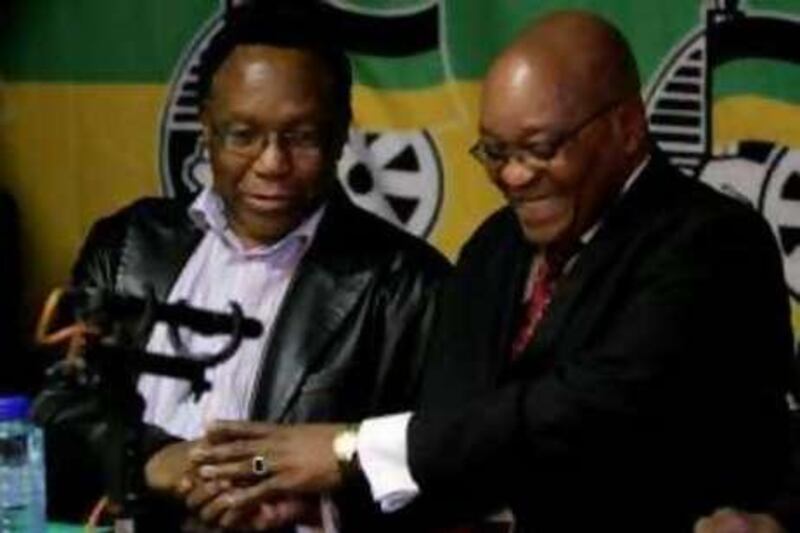HARARE // The resignation of the South African president, Thabo Mbeki, has raised new concerns about the fragile power-sharing deal he brokered just one week ago in neighbouring Zimbabwe, analysts said yesterday. Although the deal was clinched last week, tough negotiations continue on forming a cabinet that will bring together the party of Robert Mugabe, Zanu-PF, and the Movement for Democratic Change, which won the most seats during the last parliamentary elections.
An alliance of civic groups, the Crisis in Zimbabwe Coalition, said Mr Mbeki's resignation came at "a fragile time", with the cabinet list up in the air. "Considering that Mbeki was the sole mediator in the Zimbabwe agreement, Zimbabweans are now asking what the future holds," the coalition said in a statement. "Zimbabweans from all walks of life were banking on the settlement to rescue the country from the abyss it is entrenched in."
An MDC spokesman, Nelson Chamisa, insisted that Mr Mbeki's departure would not spell disaster for the Zimbabwe deal. "There is no danger posed to the agreement by President Mbeki's departure," Mr Chamisa said. The Southern African Development Community is "the guarantor of the deal. In the event that we encounter any impediments, we have recourse by way of approaching SADC and the African Union". The SADC and the African National Congress have already urged Mr Mbeki to stay on as its official mediator in Zimbabwe.
Analysts said that although the Zimbabwe deal was not in danger of falling apart, implementing the pact could prove difficult without pressure from Mr Mbeki. The terms of the agreement allow Mr Mugabe to appoint a cabinet if Zanu-PF and the two factions of the MDC fail to agree on its make-up. Mr Mugabe and Morgan Tsvangirai signed the deal on Sept 15. Mr Tsvangirai is now set to become prime minister in the new government, but his party's two factions are still haggling with Mr Mugabe's Zanu-PF over key ministerial posts.
A political analyst, Charles Mangongera, said that Mr Mbeki's authority would now be more limited. "He can no longer put pressure on Mugabe, which he managed to do as head of state," he said * AFP





